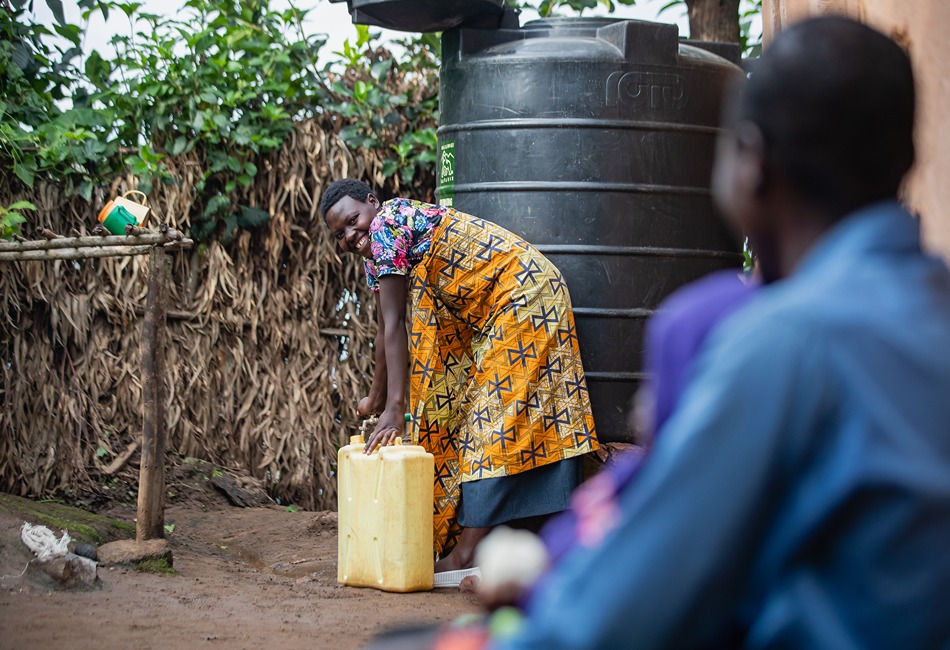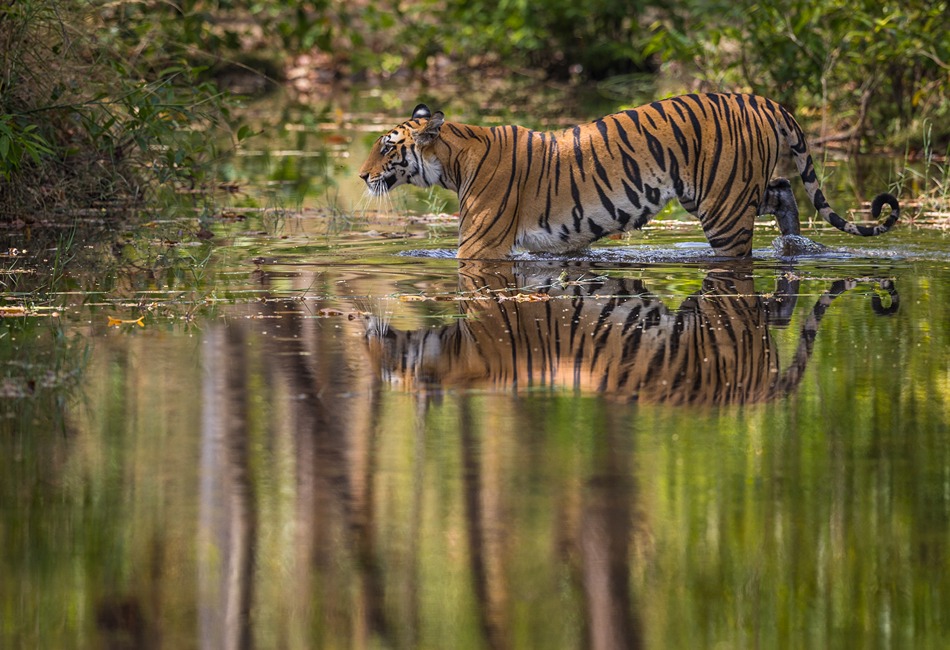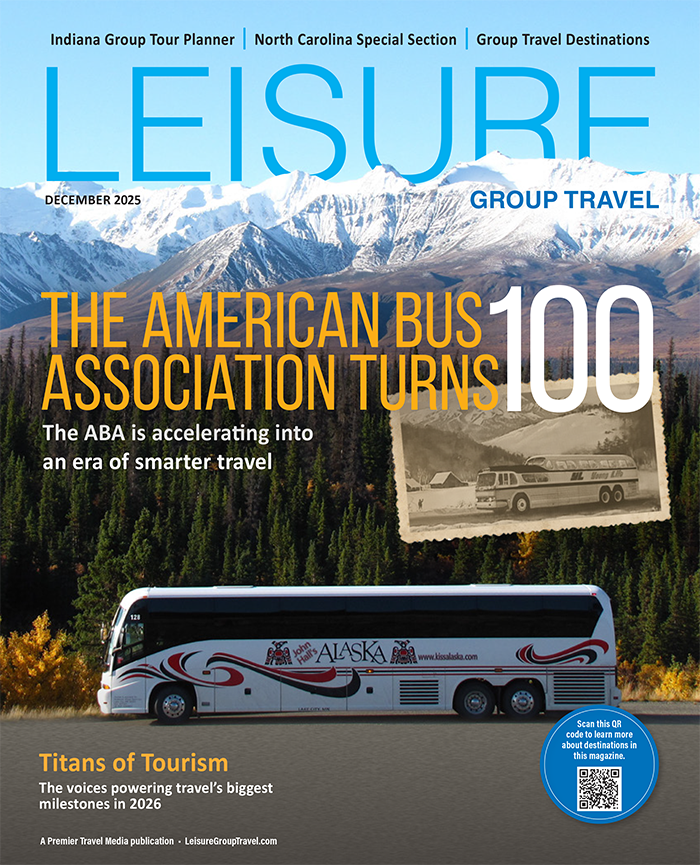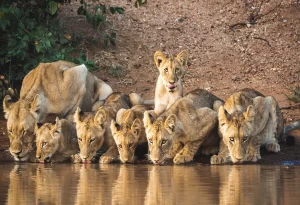How Adventure Tourism is Driving Community Empowerment and Conservation
By Jenn Smith Nelson
Eco-tourism. Regenerative travel. Conservation. Sustainability. These idealistic buzzwords fill the travel industry, however real impact goes beyond lingo and good intentions. Tourism can drive significant change, and a simple and powerful way is through community empowerment. When thoughtfully designed and delivered, community-led tourism can provide tremendous benefits to locals, travelers and the environment. Enter the transformational role of adventure tourism.
For more travel tips and ideas for groups, be sure to Download the June edition of Leisure Group Travel and Subscribe for FREE
Adventure travel is defined by the Adventure Travel Trade Association (ATTA) as “a trip that includes at least two of the following characteristics: physical activity, interaction with nature, and cultural learning or exchange.”
Think trekking through remote landscapes, wildlife viewing, foraging with locals or learning a traditional craft like weaving. At its heart, adventure travel blends immersion in nature with cultural knowledge sharing, making the inclusion of communities an obvious partnership.
Turning Tourism into a Co-Operative
Adventure travel often offers deeply meaningful and transformative experiences for travelers. However, additional transformation is achievable when operators leverage locals to co-create and deliver experiences. In addition to building inclusive economies, it turns tourism into a co-operative rather than extractive industry, supporting empowerment, conservation and preservation of traditional knowledge.
Encouragingly, several companies are leading the way, and the timing couldn’t be better. With the adventure tourism sector projected to grow at a compound annual growth rate of 16.8% from 2025 to 2030i, its potential to drive impactful change for communities and conservation has never been grander.
Among them, Encounters Asia and Volcanoes Safaris stand out as models demonstrating how adventure travel and community engagement can be used to amplify conservation and cultural efforts, to create positive and lasting benefits.

Community-First Adventure Tourism
Operating in and around India’s national parks and wildlife reserves, regions known for tiger tourism, Encounters Asia exemplifies community-first adventure tourism. Founded by third-generation conservationist Amit Sankhala, the company is deeply committed to low-impact travel that supports wildlife conservation and community development.
“It is only when the communities living around the national parks understand the importance of saving India’s natural heritage that they will act as guardians of the very wildlife our guests have come to see. For us, working with local communities is the first step,” says Sankhala.
Creating awareness, cultivating pride and empowering communities as tourism solutions designed to benefit all, Encounters Asia hires and trains locals as naturalists, guides and lodge staff. As a result, the company has created sustainable job opportunities, fostering economic independence for many locals. They also collaborate with local artisans on tourism initiatives to preserve traditional knowledge and crafts.
Enabling programs in anti-poaching, environmental education and habitat restoration, these key partnerships engage communities as stakeholders in conservation initiatives, are essential to ensuring the long-term sustainable protection of wildlife in India.

Creating Long-Term Conservation Projects
Over the past two decades, Volcanoes Safaris, led by Praveen Moman, a pioneer in gorilla and chimpanzee eco-tourism in East Africa, has remained steadfast in the belief that conservation cannot succeed without the involvement of community.
“Over the last 28 years, I’ve observed the challenges of safeguarding habitats for wildlife, funding preservation of wilderness areas and conservation, and ensuring communities have a livelihood,” said Moman.
Connecting local communities with tourism revenues through the Volcanoes Safaris Partnership Trust (VSTP), the company has launched several projects ensuring conservation efforts benefit those living close to protected areas.
VSPT aims to create long-term, self-sustaining projects that enrich livelihoods, conserve great apes, restore natural habitats and work with communities to reduce human-wildlife conflict. In turn, guests at Volcanoes Lodges can participate and share in these experiences alongside the local communities.
According to Moman, a community fee collected from lodge guests along with contributions from Volcanoes Safaris, means both guests and donors directly fund vitalcommunity and key conservation projects run by VSPT.
“Projects such as the Gahinga Batwa Village and Bwindi Bar hospitality training for young people in the Kyambura Buffer zone, support local people directly benefiting from conservation tourism,” says Moman.
Such initiatives not only help enrich communities through education, but also restore dignity, cultural identity and foster environmental responsibility.

Helping Grassroots Communities
Furthermore, through community-driven tourism championed by operators like Sankhala and Moman, travelers are provided opportunities to engage with and directly support the people and places they visit.
“Travelers today are not just seeking experiences—they’re seeking meaning. And together, we are proving that travel, when done responsibly, can be a powerful tool for conservation, community resilience and global solidarity,” says Soraya Shattuck, Executive Director, Adventure Travel Conservation Fund (ATCF).
Since its founding, the ATCF has awarded over $600,000 to 39 grassroots communities across more than 26 countries, supporting biodiversity protection, empowerment of Indigenous communities and restoration of fragile ecosystems.
The responsibility and future of adventure tourism doesn’t just fall on the shoulders of operators. It also lies in the hands of mindful travelers to seek out such experiences, choosing ethical operators who employ and empower locals, and are invested in conservation and cultural preservation. By prioritizing low-impact and sustainable tourism practices, travelers become partners in this positive travel evolution.
“Adventure travelers today are some of the most aware communities. They make conscious choices about how and where they travel, and help spread the word of conservation,” adds Sankhala.
When built on the pillars of sustainability, conservation and community, adventure tourism becomes far more than an industry; it’s a catalyst for real and tangible change. Whether trekking in search of great apes in East Africa or tracking tigers in India, these experiences showcase travel’s power to uplift communities, preserve culture and guard ecosystems.
Adventure tourism is reshaping how we travel and experience the world, while protecting its most valued assets: people, places and the planet.
For more travel tips and ideas for groups, be sure to Download the June edition of Leisure Group Travel and Subscribe for FREE







